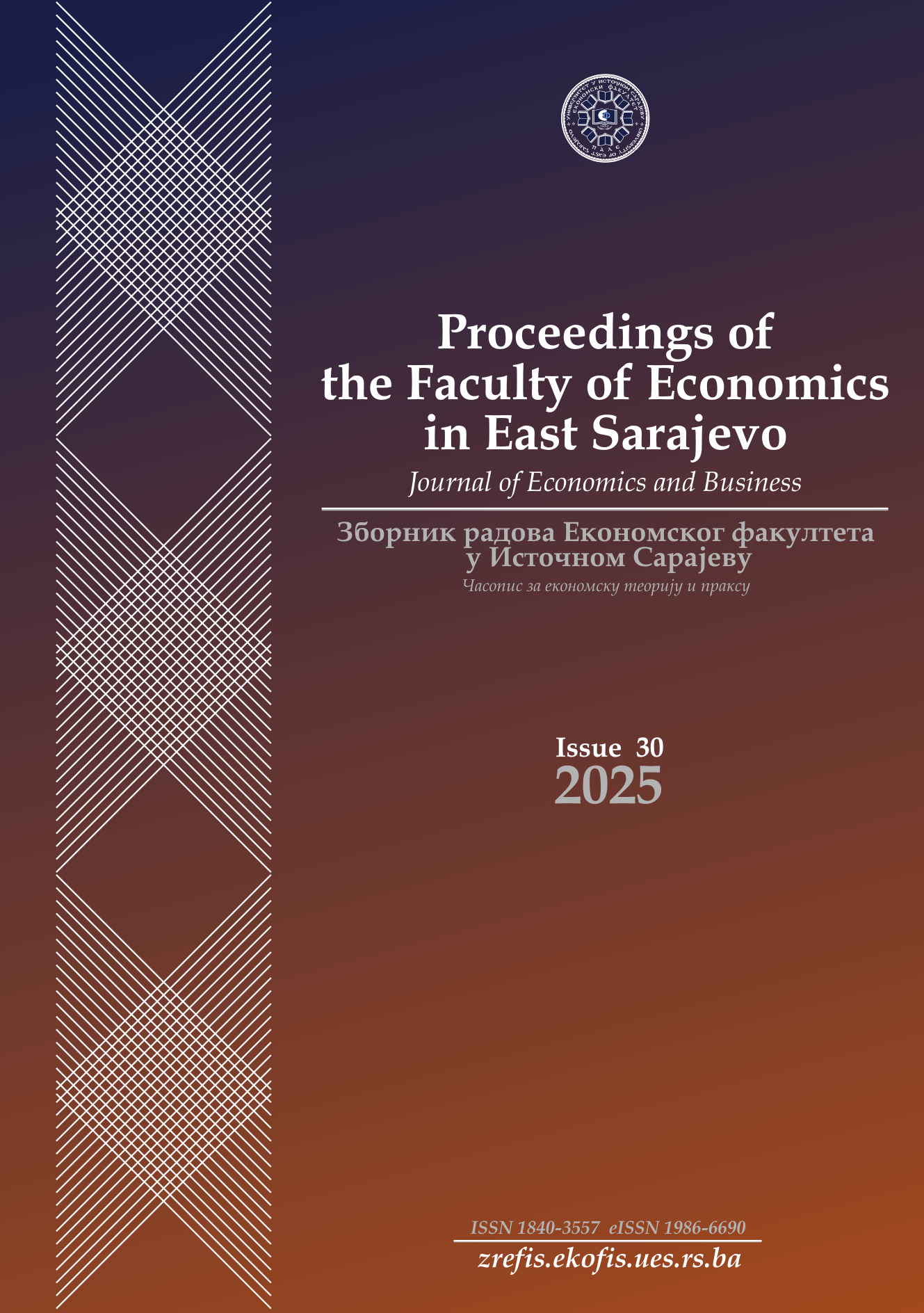PUBLIC DEBT AND ECONOMIC GROWTH IN TRANSITIONAL ECONOMIES: INSIGHTS FROM A 50-COUNTRY PANEL STUDY
DOI:
https://doi.org/10.7251/ZREFIS2530011TAbstract
The increase in public debt is a controversial issue in both developed and developing nations, but it is particularly prevalent in post-socialist economies. The challenge of rising public debt extends beyond economic concerns, encompassing political and social dimensions as well. Many former socialist countries have experienced a significant rise in public debt since their transition. This study explores the relationship between public debt growth and GDP, focusing on 50 post-socialist countries across Europe, Asia, and Africa from 2000 to 2019. Utilizing a panel model, the research incorporates macroeconomic factors such as gross investment, trade openness, human capital, and unemployment indices as control variables. The findings indicate a strong negative correlation between increasing public debt and GDP growth. The results suggest that, in post-socialist economies where there is no proper control over the use of credit funds, rising public debt hampers economic development.

